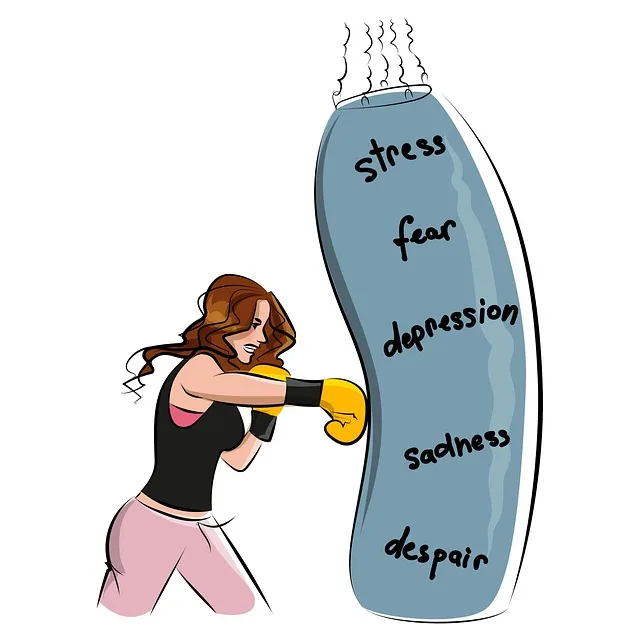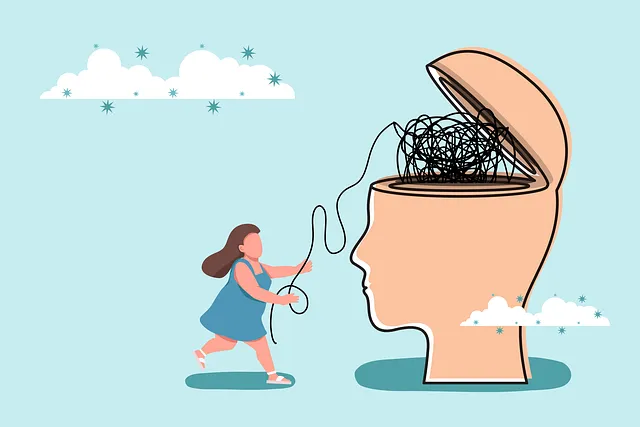Mental illness stigma significantly impedes well-being and recovery, especially within marginalized communities. To combat this, Mental Health Education Programs focus on stigma reduction, promoting cultural sensitivity in healthcare practices. Kaiser Permanente Behavioral Health Services employs patient-centered care, integrating Stress Management Workshops and Compassion Cultivation Practices. These approaches empower individuals to manage stress and reduce stigma by normalizing mental health conversations. Integrating Mental Health Awareness programs into medical education and Community Outreach Programs further bridge gaps. Success is measured through reviews like Kaiser Permanente's behavioral health services evaluations, tracking improvements in accessibility, acceptance, and understanding of mental health issues.
Mental illness stigma remains a significant barrier to access and treatment, causing undue harm to individuals and communities. This article explores targeted efforts to reduce this pervasive social construct, examining its profound impact on mental well-being. We spotlight Kaiser Permanente Behavioral Health Services as an exemplary model for change, highlighting their innovative approaches. Additionally, we provide practical strategies for healthcare providers aiming to foster stigma-free environments. Through a focus on measurement and evaluation, we explore how success can be assessed, ensuring superior support for those facing mental health challenges.
- Understanding the Impact of Stigma on Mental Health
- Kaiser Permanente Behavioral Health Services: A Model for Change
- Effective Strategies to Reduce Stigma in Healthcare Settings
- Measuring Success: Evaluating and Reviewing Stigma Reduction Efforts
Understanding the Impact of Stigma on Mental Health

Stigma surrounding mental illness can have profound effects on an individual’s well-being and recovery journey. It often leads to isolation, discrimination, and a reluctance to seek help, creating a barrier to accessing essential Kaiser Permanente behavioral health services reviews Superior care. The impact is particularly severe for marginalized communities, where cultural taboos and lack of understanding exacerbate the challenges.
Mental Health Education Programs Design that focus on stigma reduction play a crucial role in fostering a more supportive environment. By promoting cultural sensitivity in mental healthcare practice, these programs aim to dispel myths and misconceptions surrounding mental illness. This approach encourages open conversations, fosters empathy, and creates safe spaces where individuals can share their experiences without fear of judgment, ultimately enhancing access to quality care for all.
Kaiser Permanente Behavioral Health Services: A Model for Change

Kaiser Permanente Behavioral Health Services stands as a shining example of how organizations can successfully tackle mental illness stigma and promote better mental health outcomes. With a strong focus on patient-centered care, they have implemented innovative programs that not only provide superior behavioral health services but also foster an environment of understanding and support.
One notable aspect is their integration of Stress Management Workshops and Compassion Cultivation Practices into routine care. These workshops empower individuals to manage stress effectively while cultivating empathy and compassion towards themselves and others. Additionally, Kaiser Permanente prioritizes the well-being of its mental health professionals through comprehensive Risk Management Planning, ensuring they have the necessary tools to navigate challenging situations safely and ethically. Such holistic approaches contribute to reduced stigma, as they normalize conversations about mental health and showcase the effectiveness of evidence-based practices in improving lives.
Effective Strategies to Reduce Stigma in Healthcare Settings

Stigma reduction efforts within healthcare settings are essential for fostering a supportive environment for individuals seeking mental health services. One effective strategy is to integrate Mental Health Awareness programs into the curriculum for medical students and healthcare professionals. This ensures that the next generation of healthcare providers is equipped with the knowledge and empathy needed to address mental illness without bias. Additionally, implementing Community Outreach Programs can help bridge the gap between patients and behavioral health services, reducing barriers to care.
At organizations like Kaiser Permanente, superior behavioral health services reviews often highlight successful initiatives aimed at stigma reduction. These include early intervention programs for conditions like depression, which can significantly minimize the impact of stigma on patients’ lives. By combining education, community engagement, and accessible resources, healthcare settings can play a pivotal role in normalizing conversations about mental health, ultimately leading to improved patient outcomes and enhanced well-being within communities.
Measuring Success: Evaluating and Reviewing Stigma Reduction Efforts

Measuring success is an integral part of any stigma reduction effort. Organizations like Kaiser Permanente’s behavioral health services reviews play a significant role in evaluating the impact and effectiveness of these initiatives. By assessing patient experiences, treatment outcomes, and community perceptions, they can determine if programs are making meaningful progress. These reviews often involve surveys, focus groups, and data analysis to gauge improvements in areas such as accessibility, acceptance, and understanding of mental health issues.
For instance, tracking Self-Care Practices and Burnout Prevention initiatives alongside self-esteem improvement campaigns can provide valuable insights. Positive feedback and improved access to support systems indicate successful stigma reduction. Conversely, persistent barriers and negative attitudes highlight areas needing further attention. Regular evaluation ensures that efforts remain targeted, effective, and aligned with the evolving needs of communities, ultimately fostering a more inclusive and supportive environment for mental health discussions and care-seeking behaviors.
Mental illness stigma reduction is a multifaceted endeavor, as evidenced by successful initiatives like Kaiser Permanente Behavioral Health Services. By implementing effective strategies in healthcare settings and measuring success through rigorous evaluations, we can significantly enhance support for mental health patients. In light of the above, continuing to promote understanding and embrace inclusive practices is paramount. The superior results from programs like these serve as a testament to the power of stigma reduction efforts, encouraging us to navigate this critical issue with empathy and progress.






